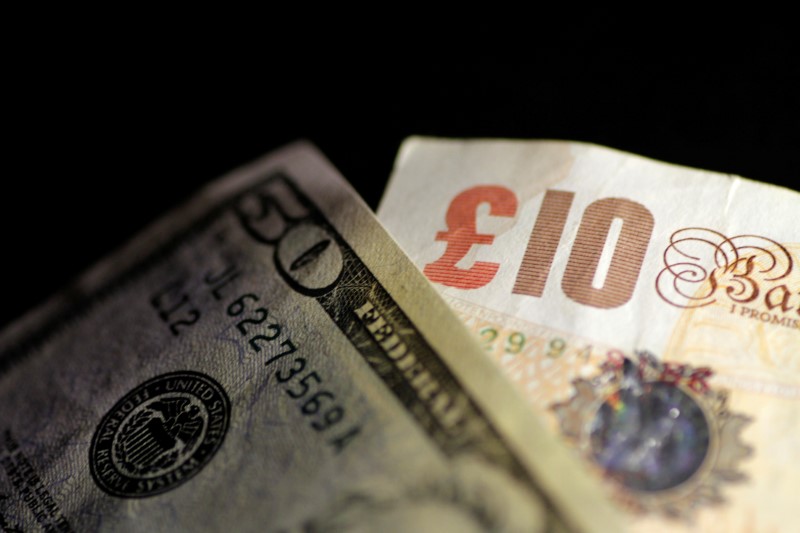By Peter Nurse
Investing.com - The U.S. dollar traded higher in Europe Tuesday, on track to post strong gains this month, while sterling gave back some of its gains from the previous session after the U.K. signed a new post-Brexit trade deal with the European Union.
At 03:05 ET (08:05 GMT), the Dollar Index, which tracks the greenback against a basket of six other currencies, traded 0.1% higher at 104.740 and is on course for a monthly gain of around 3%, its first since September.
The dollar has been on a tear this month as stronger-than-expected economic data, including hot inflation numbers, pointed to the U.S. Federal Reserve raising interest rates further and keeping them high for longer than previously envisaged.
"We have learned that U.S. inflation is proving much stickier and U.S. activity firmer than we were led to believe in December and January," said analysts at ING, in a note. "Understandably, investors are now taking the Federal Reserve hawks more seriously and have priced three more 25bp rate hikes from the Fed in March, May, and June."
Data on housing prices from December is due out later Tuesday, as is reading on consumer confidence. Later this week, investors will get the latest reading on initial jobless claims and services activity.
Elsewhere, GBP/USD fell 0.1% to 1.2045, handing back some of the previous session's around 1% gains after the U.K. and the European Union announced a new deal for post-Brexit trading arrangements for Northern Ireland.
This agreement, if it gets through a deeply divided U.K. parliament, looks set to secure improved relations with Brussels, not to mention the United States, and should make trade smoother for businesses by easing rules.
EUR/USD fell 0.1% to 1.0601, having also risen 0.6% in the previous session, after French consumer prices rose 0.9% on the month in February, an annual rise of 6.2%.
This was more than the expected 0.7% and 6.1%, respectively, and raised the prospect that the overall Eurozone annual figure might come in more than the expected 8.2% in February.
European Central Bank Chief Economist Philip Lane said earlier Tuesday that Eurozone inflation pressures have begun to ease, but added that the central bank will not end rate hikes until it is confident price growth is heading back towards 2%.
These figures suggest that its rate hikes may continue for some time to come.
USD/JPY traded 0.4% higher to 136.75, after data showed Japan's factory output fell 4.6% in January from a month earlier, the fastest decrease since May 2022.
AUD/USD fell 0.3% to 0.6712, NZD/USD dropped 0.4% to 0.6142, while USD/CNY edged lower to 6.9434, ahead of Wednesday's release of China's Purchasing Managers data for February.
This is expected to show that business activity in China's important manufacturing sector improved from the prior month, but remained close to contraction territory.
